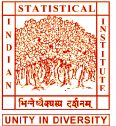Speaker: Digvijay Singh Negi, Indira Gandhi Institute of Development Research, Mumbai
Abstract
Can policies that distort market incentives result in negative externalities with large and widespread social costs? I uncover a robust relationship between global rice prices and air pollution in India. I establish that this link comes about due to higher global rice prices leading to increased agricultural fire activity in states where the government is the largest buyer of rice. In terms of mechanisms, I observe higher global prices leading to specialization in rice cultivation in states with higher government interference but not necessarily suitable for rice cultivation. Market distortion in the form of a pre-announced national price floor supported by government procurement of surplus rice delinks local prices from local productivity shocks and links them with global price movements. This is striking, given that India’s agricultural price policy intends to insulate farmers from global price volatility.



